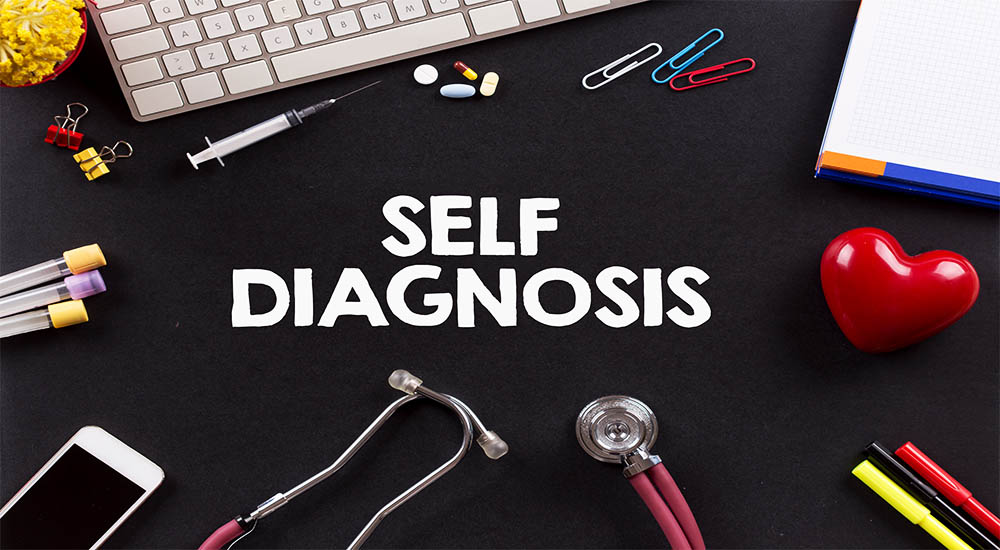Gluten Intolerant? You May Need to Diagnose Yourself!

Do You Search On-line for Health Information?

Whether you want more information on gluten intolerance or something else, more and more individuals are discovering valuable information on the internet.
Has Your Doctor Asked You Not To?
Have you ever had a doctor get mad at you when you shared with him or her something you learned on-line?
Very often I hear from my patients that other doctors whom they’ve seen have asked them to discontinue searching on-line for information regarding their health. Some have been so aggressive, according to patients, that they have said they will refuse to treat the patient if they continue their own research.
A very close friend’s young adult son recently diagnosed his own tumor after researching on-line. When he went to his doctor with the diagnosis (that later turned out to be accurate), his doctor dismissed it as unlikely!
As a clinician myself, I can partially understand why some doctors might be frustrated with their patients’ desire to diagnose themselves, especially if it results in a different self-diagnosis each week or escalating anxiety about conditions unlikely to occur.
But for myself and my team, we believe that knowledge is power and that the person who owns the body understands it best. We are therefore very respectful of each patient’s opinions.
Self Diagnosing Gluten Intolerance is Very Common
When it comes to gluten intolerance, self-diagnosis is becoming more common. In fact, when it comes to the limited understanding of most doctors as regards the subject, I would out-right encourage people to diagnose themselves.
I have some suggestions on how best to accomplish that, so read on. But when you think of weighing no diagnosis to a self-diagnosis, can you really compare which is better when it comes to a condition that is known to create early death and initiate hundreds of diseases and symptoms?
There is certainly no danger to going gluten-free, but there is a large danger associated with continuing to eat it when one is intolerant. Granted it would be ideal to run a comprehensive blood test that distinguished between celiac disease and gluten sensitivity and accurately, sensitively diagnosed each. Does such a test exist? Not exactly.
Our best test at the moment, in my opinion, is a Cyrex lab blood test that evaluates several markers for both diseases and likely produces far less false negatives than a single tTG or AGA test (common tests for celiac and gluten sensitivity). But perhaps the most sensitive test is the one you can do at home and it’s free – a 30-day gluten elimination diet. Feeling better after removing gluten is a valid test.
Most Suffer Undiagnosed
Obviously, if the perfect test existed we would be much better at diagnosing celiac disease than our current ‘success rate’ (sarcasm intended!) of 3 to 5%. When it comes to gluten sensitivity we likely diagnose a paltry 1% only. Are we missing something?
We are certainly missing the critical diagnosis of millions of Americans suffering from one of these two diseases. We are missing a broad scale awareness campaign that alerts the millions of suffering that they are at risk. We are also missing a drug treatment – the option of choice in our US healthcare system, although I am personally not a big fan as all drugs come with side effects.
Will You Join Me in a Grassroots Movement?
I propose that we take this mission on ourselves. The truth of the matter is that without pharmaceutical involvement in the way of expensive medication, mainstream medicine is not going to lead the charge. We need you – you and me.
Grassroots movements can be very powerful. We already have the food industry behind us. Goodness knows they are happily manufacturing more and more gluten-free foods with each passing year. The pharmaceutical companies may not be making any money on gluten intolerance, but food manufacturers definitely are. I think they would be more than delighted to add millions of correctly diagnosed celiac and gluten-sensitive patients to their customer base.
Let Me Hear Your Ideas…
So how should we do this? I want to hear from you. This is not something I can do alone. I write blogs such as this, lecture, and make videos often. But without your support, I cannot create the level of awareness that all those undiagnosed gluten intolerant people need. Please let me know your thoughts. I am ready to launch this campaign in earnest, but I need your help. I look forward to hearing from you! Remember we are here to help those who need it. Our purpose is to get to the underlying root cause of why your body is not functioning the way you desire it to.
Do you need help with your health?
We have the diagnostic and testing tools, the clinical experience, and a different medical approach to discovering the root cause of why you have the symptoms that are bothering you. As long as you are ready to make some dietary and lifestyle changes, we can help you. We will "hold your hand" through the changes, step by step, to make each step an easy one. We are located in Clearwater, FL, at 1000 S Ft Harrison, at the corner of Ft. Harrison Ave. and Magnolia St. There is plenty of parking space directly accessible from Ft Harrison. If it is not convenient for you to come to Root Cause Medical Clinic, we offer telehealth/telemedicine consultations to residents of certain states. Call us for details.
Contact us for a Consultation – Call 727-335-0400

Dr. Vikki Petersen DC. CCN
Founder of Root Cause Medical Clinic
Certified Functional Medicine Practitioner
Dr Vikki Petersen is a public speaker, author of two books, several eBooks and creates cutting edge content for her YouTube community. Dr Vikki is committed to bringing Root Cause Medicine and its unique approach to restoring health naturally to the world.
Ask a Doctor
Have a health concern you'd like to speak with a doctor about? Or just want clarity on a subject? Ask Us!


